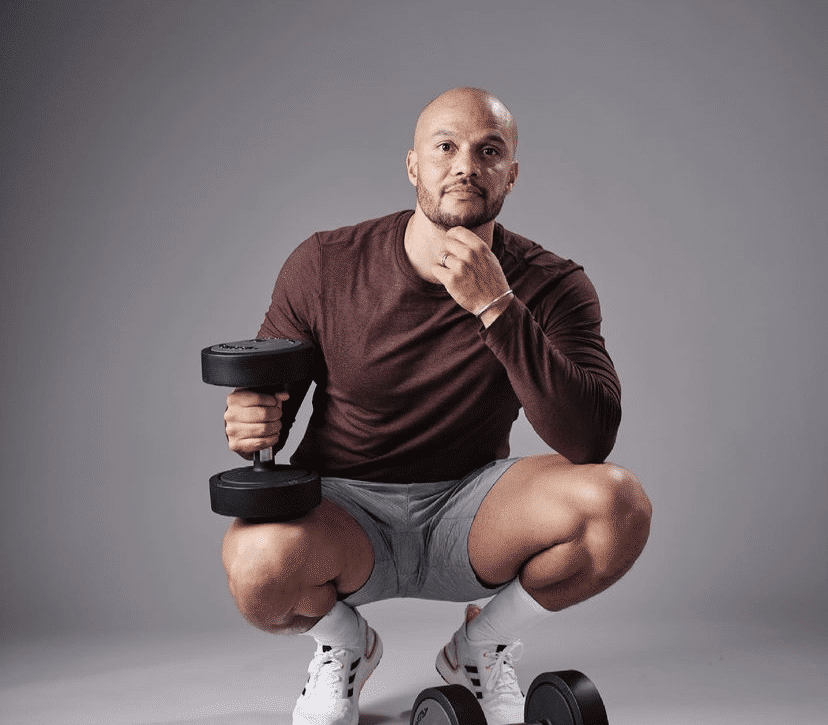Harry Jameson on post-lockdown health and fitness regimes
Health
Top trainer, coach and columnist Harry Jameson on easing back into your health and fitness routines after lockdown.
It kind of goes without saying, but for almost everyone I know the last year has been one of the most challenging to date. For many of us, myself included, fitness was the key anchor that kept me going. For me, that started with how to use your 60 minutes outside to maximum effect and using training to manage my stress and mental health. It was also important to have goals to work towards to break the monotony and keep me motivated. Ok, so I was already a fitness fanatic, however the true importance of my training regime and my wider wellness behaviours really did hit home during this time, and I for one will never take my health, my ability to exercise and access to training facilitates, for granted again.
Whilst many of us trained for aesthetics or to facilitate a slightly ‘looser’ than optimal diet, the impact that exercise has on longer term mental and physical wellbeing has been widely reinforced, and will, I hope, be a positive legacy of lockdown.
Building your exercise routine
Gyms and fitness classes are now back open. No longer will we have to use that dusty set of encyclopaedias to lift, or do push-ups in the kitchen before everyone gathers for dinner. However, it is key not to fall into the trap of overdoing exercise. As important as movement is, so too is the recovery period. Take, for example, high-intensity interval training (or HIIT). These classes are a great way to develop your cardiovascular fitness and a good fat burner, however I would recommend this type of training only makes up around 30% of your weekly activity. If you do not give your body the time it needs to recover and refuel, you will be pushing it beyond its limits. This can mean it will become more inflamed if it is already stressed or lacking other essential elements like nutrition or sleep. Supplement with a lower-intensity weights session twice a week to keep your body moving, but at a rate at which recovery can still happen. ‘Recover as hard as you train’ is a phrase that I love. For example, even a long family weekend walk can fall nicely into that mindful recovery space.
Get yourself moving
Of course, medium-high intensity cardio exercise may not be for everyone. Walking is perhaps one of the most underrated forms of exercise – you can burn up to 1,800 calories a week just by simply walking for an hour, five days a week. Unfortunately for many of us, what would have been our daily commute has been a walk from our bed to our desk for the last year. This means a lot of us have not been able to reach that recommended daily target of 10,000 steps. Most of the calories you burn are burned outside of the gym, so slowly building yourself back up to this daily target is paramount. One great tip is changing your weekly food shop to one every few days, and walking to and from the shops. You’ll be eating fresher food and increasing your weekly step count at the same time. Win win.
Take it easier
A lot of men may turn their nose up at a yoga class, but stretching is as vital to your overall wellness as lifting weights or high-intensity cardio. Reframe the word ‘yoga’ with mobility and consider the advantages of being more flexible on almost any sporting activity, preventing injury and staying pain free as you age.
The enhanced flexibility you can gain from just a ten-minute stretching session are hugely beneficial and target all of the key muscle groups, including hamstrings, quads, glutes and the back.
Gut Matters
Perhaps one of the lesser-known key players in our health and wellbeing is the gut microbiome. The gut microbiome is a massive ecosystem made up of trillions of cells and organisms that live in our digestive tract. Recent studies have found a link between strains of bacteria in our microbiome and the capacity for exercise, with athletes displaying higher numbers of certain bacteria within their gut microbiome. This has been attributed to both a more efficient breaking-down of lactate through activity, plus a positive shifting of the microbiome’s composition through movement. We also know the correlation between gut and mood. Improving the former can have a positive effect on the latter, and affecting your mood, energy and motivation in a positive way can only be a good thing.
The importance of routine
Many fail to realise that most of the journey to improve our health happens outside of exercise. Building nutrition and a good sleep pattern into your routine is paramount. Like many others, my sleep schedule over the past year has not been as routine. However, it’s important to be mindful of this pattern when working from home. A lack of sleep can increase stress, which has a proven negative effect on our gut microbiome. The NHS recommend between six and nine hours of sleep a night as well as trying to wake up at the same time daily, so it is important to set a regular sleep schedule. Introducing a 10-minute meditation pre sleep and disconnecting form mobile devices 60 minutes before actually sleeping are both hugely beneficial to sleep quality.
Incorporating the gut into your routine
I like to practice intermittent fasting. It has been shown to benefit the gut microbiome as well as helping to regulate blood sugar and manage weight. I’m also conscious of what I break my fasts with and normally do this by eating fibre-rich foods to nourish your gut. I would also recommend supplements to further stimulate your gut bacteria.
I start every morning by taking a shot of Symprove, a water-based food supplement with four strains of live and active bacteria. These bacteria once taken arrive safely in the gut, surviving the harsh environment of the stomach, before colonising and thriving in the gut. I aim to take a shot of Symprove ten minutes before having my morning pint of water and coffee.
Final Thoughts
It is admittedly very challenging to give universal advice that applies to EVERYONE. However, there are a few things that I feel we could all benefit from. Creating a morning and evening routine to energise your body and help it to unwind at each end of the day, and consistently engaging in behaviours that support your gut microbiome would fall into that category. We are a product of the behaviours we most regularly engage in, so if you aspire to be happy, fit and healthy, create a routine that gives you the best chance to win.
Harry is an advocate for water-based food supplement, Symprove, which contains four carefully selected strains of live and active bacteria. To kickstart your Symprove journey, order a 12-week (£158) or 4-week (£79) course online via Symprove.com

Join The Book of Man
Sign up to our daily newsletters to join the frontline of the revolution in masculinity.


















